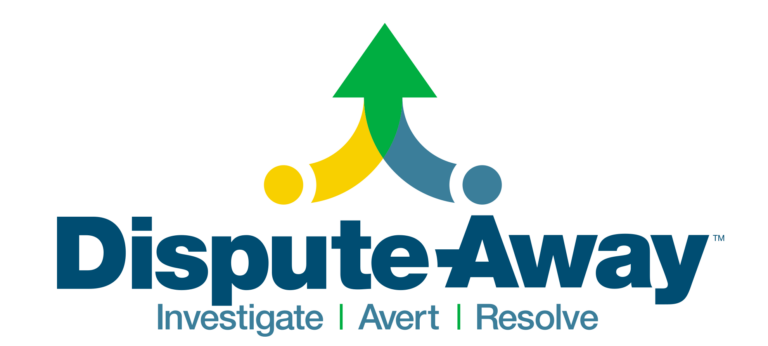
Investigation
Often, business owners or executives are placed in a position of encountering a potential dispute without knowing all the facts. Obtaining the relevant facts can avoid defaulting into a “Well, it is a ‘he said; she said’ situation and we can’t really do anything,” response, which can lead to more bad feelings. Years of experience in interviewing witnesses often leads to breakthroughs and admissions. The process of using an outside expert itself often convinces the parties that their concerns are being taken seriously, thus contributing to a satisfactory resolution. Confidentiality is a high priority for Dispute-Away.

Mediation
Mediation is a process where a neutral party assists the disputants to craft their own solution. It is confidential, under the law, and not limited in what the parties can do to resolve their problems (within the bounds of what is legal.) Lawsuits can only yield a limited set of results (usually money damages and sometimes injunctions to stop certain actions) but the parties can craft their own solutions, sometimes helped by the neutral mediator. The mediation style employed by Dispute-Away is to take an active role in the process, encouraging parties to think outside the box, to test their assumptions, and to understand the consequences of failing to reach a resolution. Often, “shuttle diplomacy” is employed to test ideas and permit the parties to work without necessarily being distracted by the immediate presence of their opponents. The mediation process is overwhelmingly successful if the parties are all present and are prepared to at least consider a potential resolution. Mediation is controlled, confidential, relatively inexpensive, and usually successful.

Arbitration
Both federal and state legislatures have provided for arbitration as a potentially faster, cheaper, and fairer process than court litigation. Neutral arbitrators serve the parties and work with the parties on scheduling processes and hearings. As a result, cases move more quickly in arbitration than in court. The process of obtaining facts through discovery is more focused and thus more efficient. The process is not subject to being disrupted by the need to try a criminal case, which adds tremendously to the cost of court litigation. According to Department of Justice statistics, only 3% of civil cases filed in court actually go to trial. The rest are disposed of by settlement or voluntary dismissal by plaintiffs who are too exhausted by the process to continue to pursue the case https://www.bjs.gov/content/pub/pdf/ctcvlc01.pdf.
Dispute-Away is committed to prompt disposition of cases entrusted to it. Mr. Ashmus involves clients in their own cases when appropriate, and works hard to focus the lawyers on the case and its timeline. The parties and their lawyers select the schedule for the case and are expected to hold to that schedule. Electronic discovery is available to the extent that it is necessary for the parties to prepare their cases, but is discouraged where it serves only to “check the box” or add needless costs to the process. Rough formats of general scheduling orders are available elsewhere on this site.
As an arbitrator listed on the American Arbitration Association, Mr. Ashmus fully complies with all the AAA training and ethics requirements. Conflict checks are performed for each new case.

Compliance
Businesses must be concerned about ethical and financial compliance in the current era. Large businesses have been fined hundreds of millions of dollars for ethical lapses, and small businesses have been financially ruined by misconduct of rogue employees or actual theft by employees or outside criminals. Building a culture of compliance is critical, as is addressing any incidents that do occur. Dispute-Away can assist in developing compliance programs tailored to the needs and size of any business and can investigate lapses when they occur. The ACFCS Certification assures quality and expertise in financial compliance.
